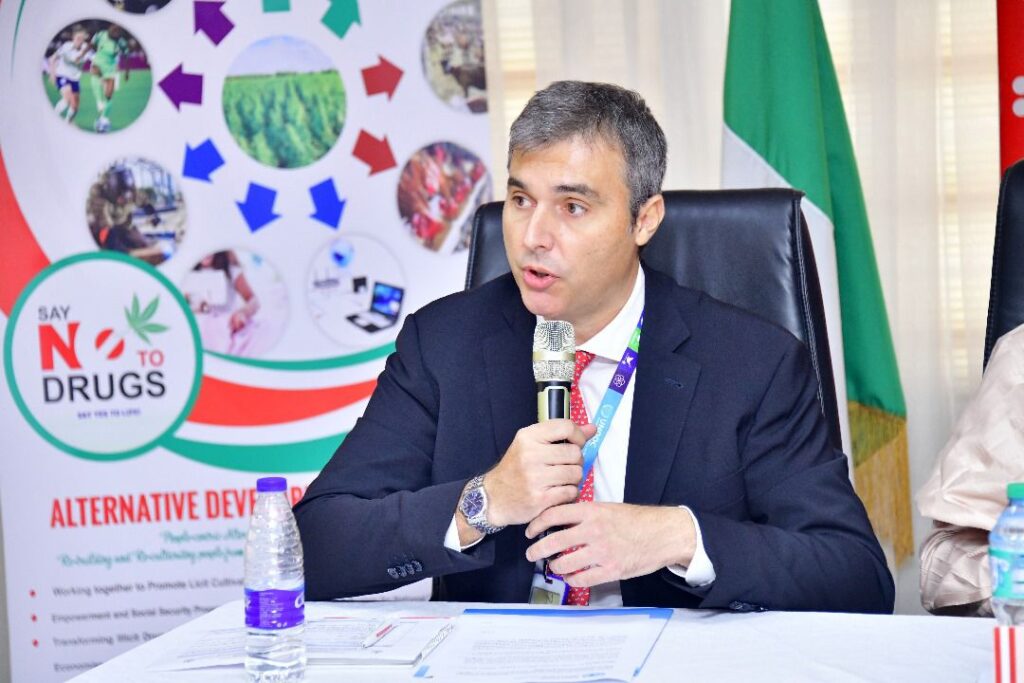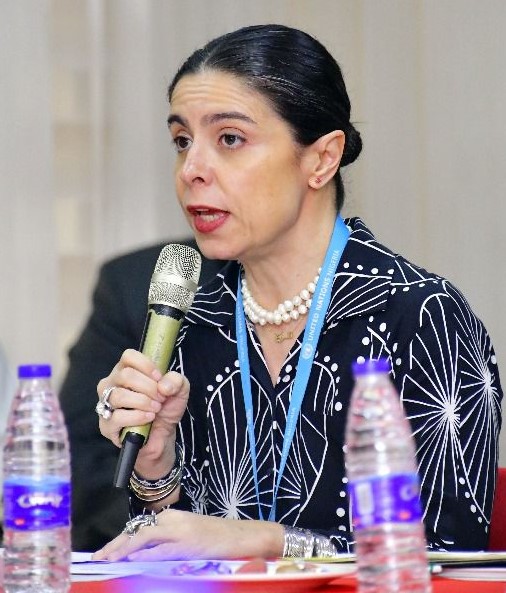By Ajibola Olaide, JKNewsMedia Reporter
INTERNATIONAL PARTNERS and local stakeholders in the global fight against illicit drug trafficking have pledged their support for the National Drug Law Enforcement Agency’s (NDLEA) Alternative Development Project (ADP).
This initiative aims to redirect illicit drug producers and dealers towards lawful and productive business ventures.
During the opening ceremony of a two-day workshop on “Building a Support Network for the Alternative Development Project in Nigeria,” held at the NDLEA National Headquarters in Abuja on August 28, 2024, stakeholders expressed their readiness to support the initiative.
The workshop was organized by the NDLEA’s Alternative Development unit.
NDLEA Chairman/Chief Executive Officer, Brigadier General Mohamed Buba Marwa (Rtd), outlined the objectives of the ADP, emphasizing its focus on reducing the vulnerabilities that lead people into illicit economies, particularly in drug cultivation.

“The Alternative Development Project will address ignorance, poverty, hunger, unemployment, and underdevelopment that drive people to illicit drug cultivation, especially in Southwest Nigeria where agricultural lands are being converted into cannabis plantations,” Marwa stated.
The project will include agricultural development through crop substitution, community development, and the provision of skills acquisition and empowerment programs to promote sustainable livelihoods.
Marwa also thanked the Global Partnership on Drug Policies and Development in Berlin for facilitating an Alternative Development study visit to Thailand for NDLEA officers and acknowledged the contributions of the United Nations Office on Drugs and Crime (UNODC) and other stakeholders in developing the ADP framework.
Dr. Justice Tettey, Chief of the Drugs, Laboratory, and Scientific Services Branch of UNODC, Vienna, praised NDLEA for leading the way in Alternative Development in Africa and identified key elements for the project’s success, including a people-centered approach, value-added production chains, and environmental sustainability.

He reiterated UNODC’s commitment to supporting the project’s implementation.
Danilo Campisi, Officer-in-Charge at the UNODC Country Office in Nigeria, highlighted the potential of converting 8,900 hectares of cannabis farmland in six Nigerian states into licit crop production.

He condemned the exploitation of vulnerable young men by drug barons and stressed the importance of providing sustainable livelihoods to prevent unlawful activities.
The workshop also featured remarks from Dr. Kingsley Uzoma, Senior Special Assistant to the President on Agribusiness and Productivity Enhancement, who aligned the ADP with President Tinubu’s commitment to tackling unemployment and empowering youth and women through productive farming activities.
Other notable speakers included representatives from the United Nations International Organization for Migration, the Ashnik Alternative Development Initiative, and the International Society of Substance Use Prevention and Treatment Professionals (ISSUP) Nigeria.





